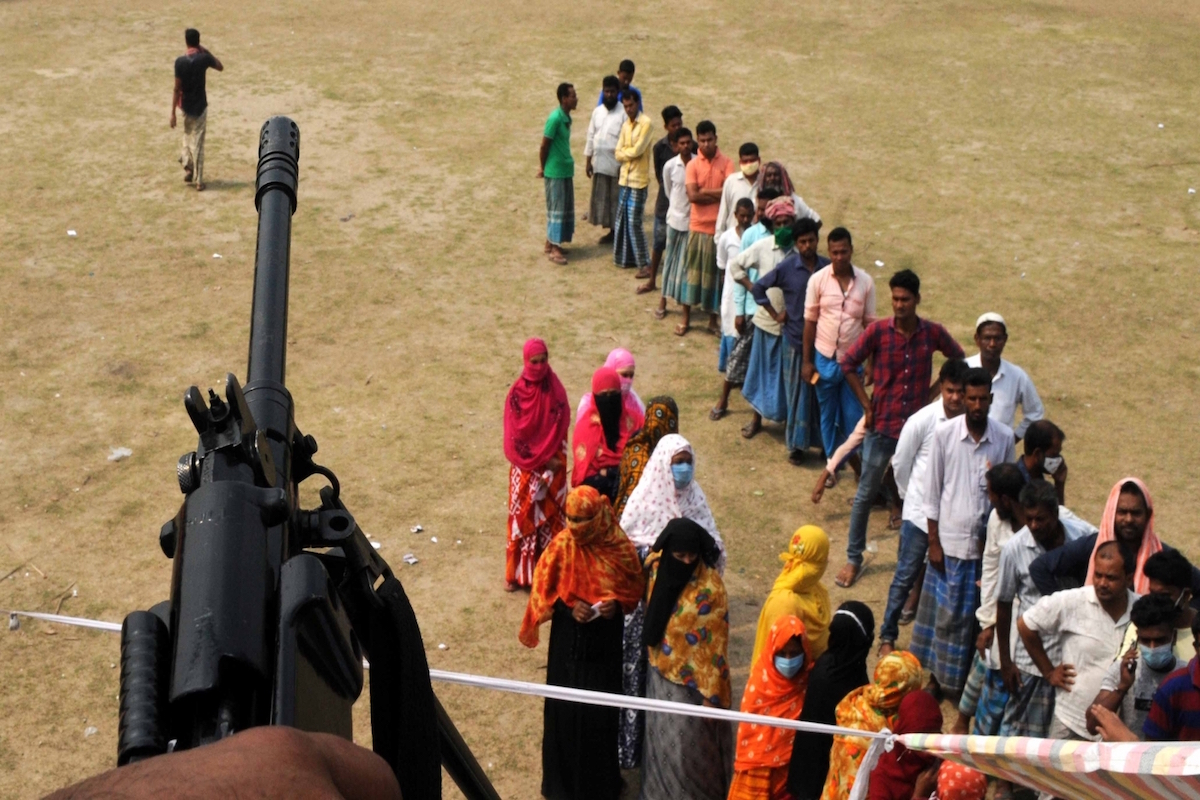KMC focus on slum area development for next fiscal
With emphasis on women-centric projects, the city’s slum areas are slated for an infrastructural development in the next fiscal.

Voters outside a polling station to cast their vote during the 4th phase of State Assembly election in South 24 Pargana district On Saturday, April 10th, 2021.(photo: Kuntal Chakrabarty/IANS)
When rain lashed her village in Bashirhaat in the North 24 Paraganas District of West Bengal, her
grandparents were both delighted and dismayed. “On the one hand the paddy crops they had
planted desperately needed watering as the season had been dry and they were petrified that it
would be another year of failed cultivation but on the other the incessant downpour which
continued on for days meant that the paddy fields would flood, destroying the produce.” Bishakha
Sardar, 40, a domestic worker in Kolkata, remembers her childhood days in the remote village near
the Bangladesh border, where her farmer grandparents lived in perpetual uncertainty about
whether or not their paddy crop would fail. Finally, one dark night twenty-five years ago, as the wind
howled outside their mud hut and floodwater reached their doorstep and the tiny oil lamp flickered
on their window sill, her grandparents and decided that it would be better to work in the city as
labourers than live in constant fear of failure as farmers.
“Though we shifted to the city, our farmer friends and relatives who stayed behind are no longer
subjected to that kind of misery thanks to the financial assistance that farmers today receive from
the state government,” says Bishakha, who is thinking of returning to the village with her husband
and two sons.
She is referring to the West Bengal government’s “Krishak Bandhu (Friend of the Farmer)” scheme,
which was started by chief minister Mamata Banerjee in 2019. A project of the Department of
Agriculture, it entitles “all farmers” of the state to receive monetary assistance on a regular, annual
basis. Each farmer who has registered himself or herself in the scheme directly receives a minimum
of Rs 4,000 and a maximum of Rs 10,000 in their bank accounts depending on the amount of land
they own. (Those who own cultivable land which is less than one acre are entitled to get Rs 4,000
and those who own cultivable land which is more than one acre are entitled to get Rs 10,000). The
money is paid in equal instalments during the two main harvesting seasons.
The scheme also offers social security. In case of death of a farmer between the ages of eighteen
and sixty, the “Krishak Bandhu Death Benefit” entitles his or her family members an amount of Rs 2
lakh which is a one-time compensation paid in lump sum.
“My sons, who are now in their late teens and are used to living in the city, are a little reluctant still
to return to the villages they are finding the benefits offered by the schemes to be really attractive,”
says Bishakha. “And who knows maybe one day they will want to go back?”
With the Parliamentary elections coming up in less than a year, the family will definitely go back to
cast their votes.
Advertisement
Advertisement